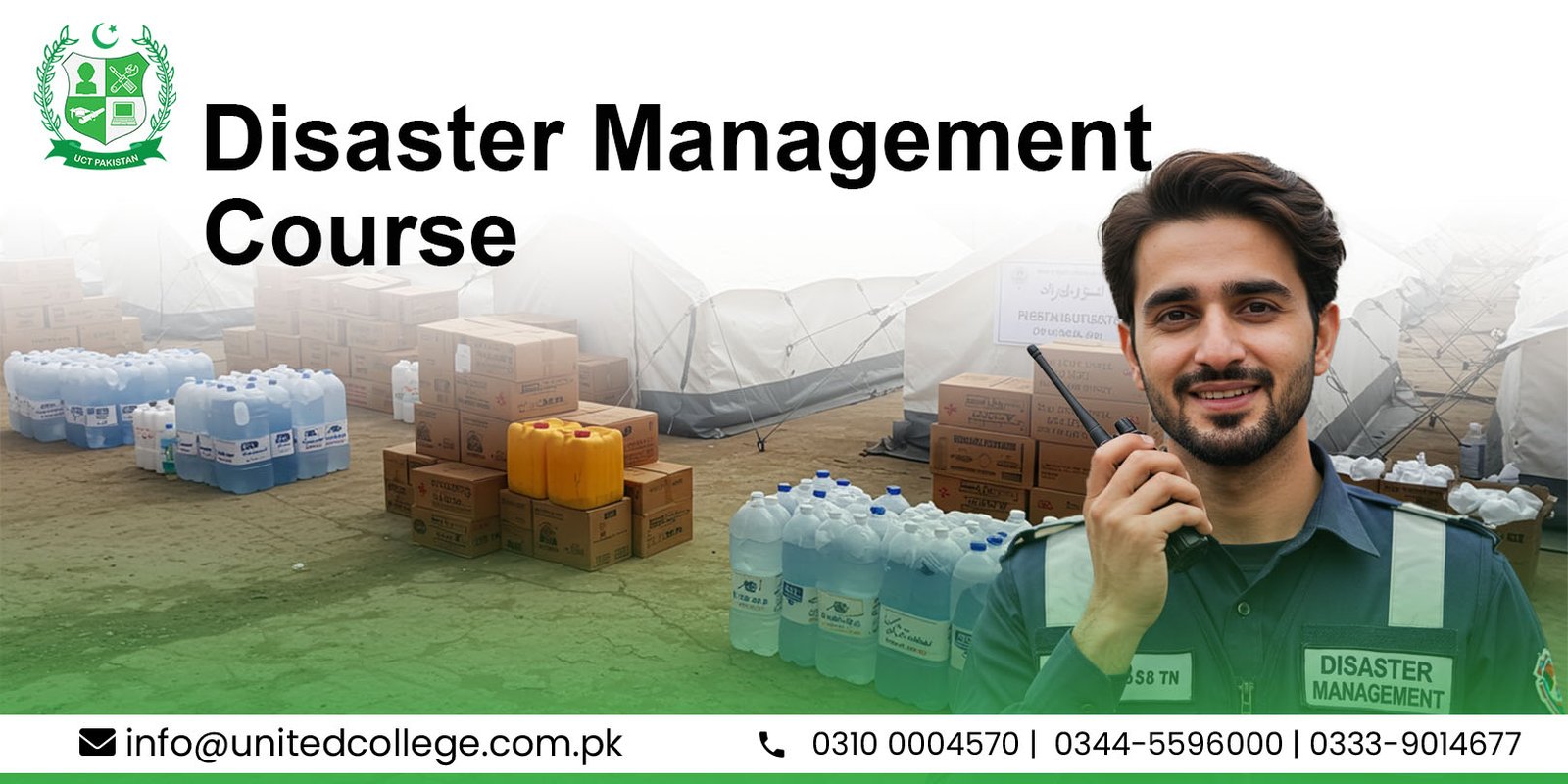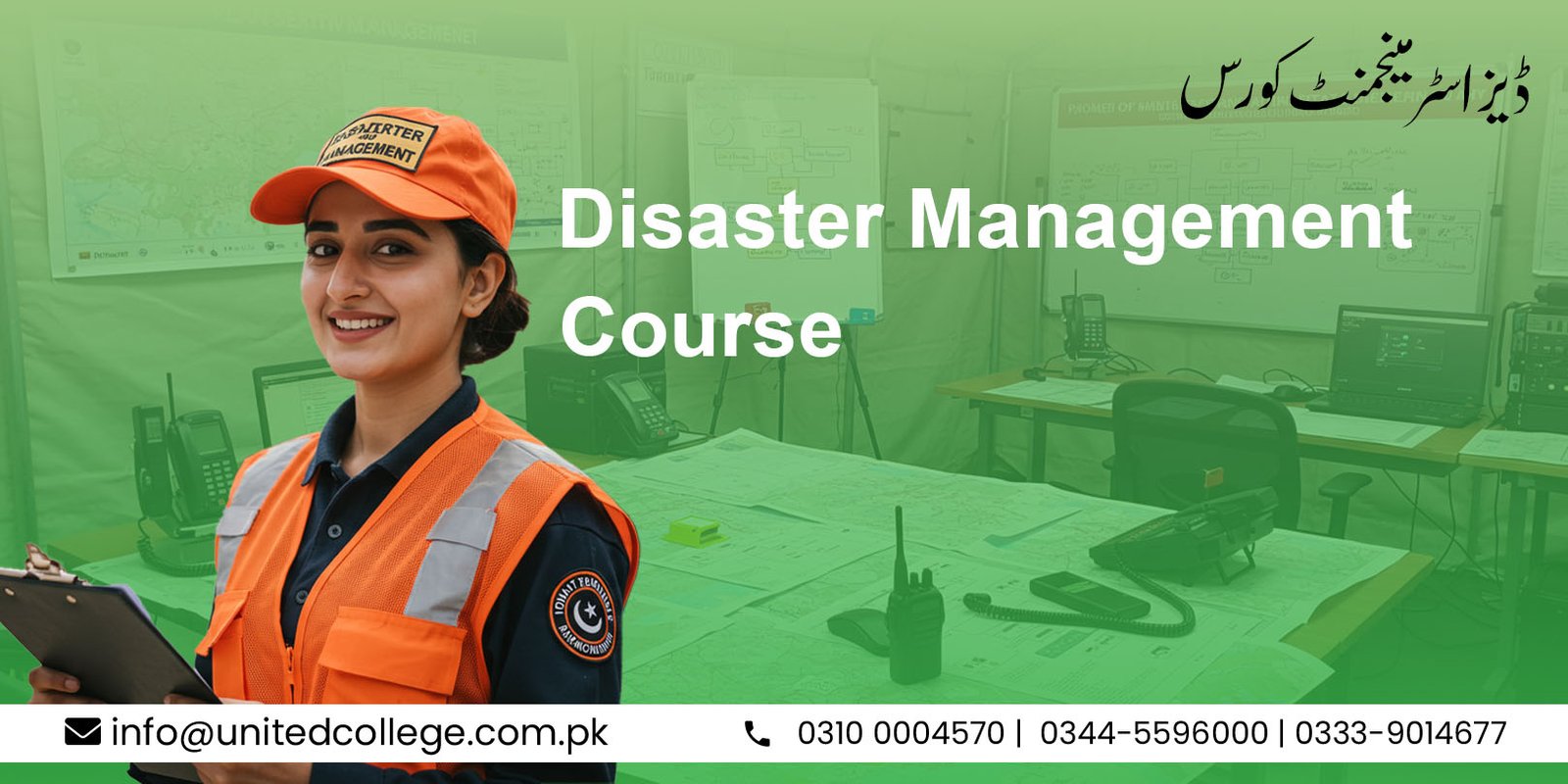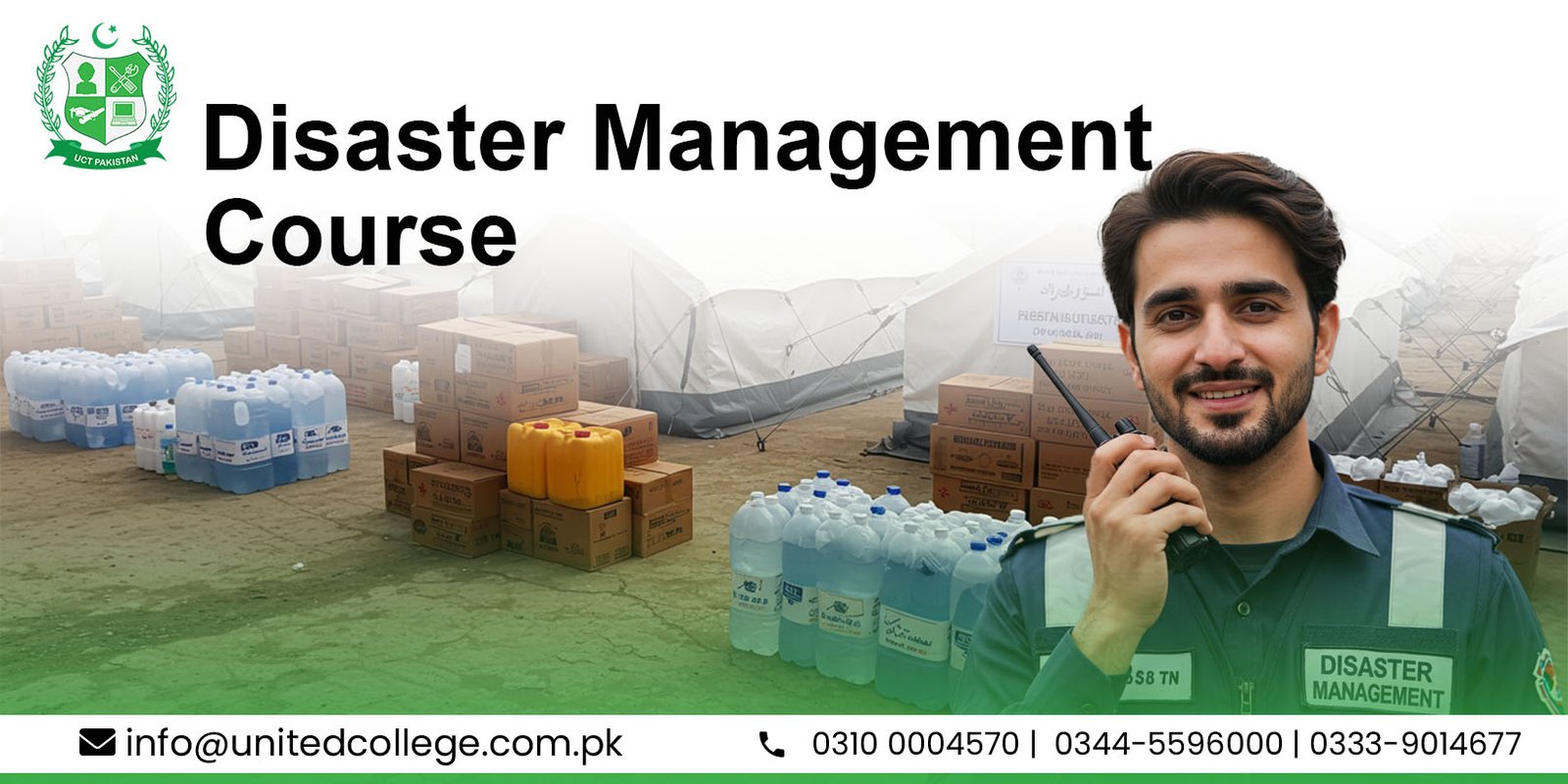

Disasters can strike anytime — from natural hazards like floods and earthquakes to industrial accidents and large-scale emergencies. The Disaster Management Course in Rawalpindi offered by the United College of Technology (UCT) equips learners with the skills, knowledge, and practical strategies to handle crises effectively. Designed for students, safety professionals, NGO workers, and emergency planners, this program combines theoretical learning with real-world simulations to prepare participants for disaster preparedness, risk reduction, and post-disaster recovery.
UCT is a leading technical institute in Rawalpindi specializing in industry-relevant, skill-based training. Experienced instructors with expertise in disaster preparedness training, crisis management, and emergency planning deliver this course. With a focus on both national and international disaster management standards, our training ensures that participants are well-prepared for challenges in the government, corporate, and humanitarian sectors.
This module provides a comprehensive overview of disaster management concepts, types of disasters, and the global framework for risk reduction. Students learn the definitions, phases, and principles of effective emergency response courses. By understanding the fundamentals, participants are better equipped to assess potential threats and develop proactive safety measures.
Reducing the impact of disasters begins with prevention. This section covers disaster risk reduction techniques such as hazard mapping, vulnerability assessments, and community awareness programs. Learners explore international frameworks like the Sendai Framework for Disaster Risk Reduction and how these guidelines apply to Pakistan’s unique context.
Preparedness saves lives. This topic teaches students how to develop and implement emergency planning procedures for communities, schools, and workplaces. From creating evacuation routes to stockpiling essential supplies, participants learn the step-by-step process of building robust disaster readiness systems.
An efficient response depends on structured leadership. This module introduces the Incident Command System, a globally recognized approach to managing emergencies. Students learn how to coordinate teams, assign roles, and communicate effectively under high-pressure conditions.
When a disaster unfolds, quick and informed decisions are critical. Our crisis management training focuses on decision-making, coordination, and communication during emergencies. This hands-on section includes role-playing exercises to simulate real-life crises, helping participants strengthen their leadership abilities.
Engaging local communities in disaster preparedness ensures faster recovery and resilience. Students study case examples of community-based approaches, learning how to empower residents, form volunteer teams, and create awareness campaigns to reduce disaster risks.
In this practical segment, participants gain skills in search and rescue techniques, first aid, and safe evacuation methods. With the guidance of experienced trainers, students practice rescue drills that simulate real emergency conditions.
This section covers how safety management diplomas integrate into disaster risk reduction. Learners understand workplace safety protocols, occupational hazard controls, and compliance with local and international safety standards.
Recovery is more than rebuilding infrastructure; it’s about restoring communities. Students learn about post-disaster assessments, psychosocial support for survivors, and sustainable reconstruction methods that reduce future risks.
Modern technology plays a vital role in detecting, preventing, and responding to disasters. This section explores GIS mapping, early warning systems, and mobile applications for emergency alerts, enabling faster, data-driven responses.
Graduates of the Disaster Management Course in Rawalpindi can work in diverse fields such as government disaster management authorities, NGOs, safety consultancy firms, and humanitarian aid organizations. This section highlights how this qualification opens doors to high-demand roles.
The course typically runs for 3–6 months, depending on the study mode. Upon successful completion, participants receive a Disaster Management Certification from UCT, recognized by leading safety and emergency response organizations.
If you’re ready to take control in critical situations and help protect communities, join the Disaster Management Course in Rawalpindi at United College of Technology today. Gain the expertise, confidence, and credentials to make a real difference when it matters most.


.jpg)
.jpg)
.jpg)
.jpg)
The Disaster Management Course in Rawalpindi at United College of Technology (UCT) trains students and professionals in disaster preparedness, risk reduction, and emergency response. It covers planning, rescue operations, crisis communication, and post-disaster recovery to help protect lives and property.
This course is ideal for safety professionals, NGO workers, government employees, volunteers, health workers, and students who want to build skills in disaster preparedness training and emergency planning.
You’ll learn disaster risk assessment, crisis management, emergency response techniques, community-based disaster management, and the use of modern technology in disaster situations.
The course duration is typically 3–6 months, depending on your study mode. Both regular and fast-track training options are available.
You can apply online through the United College of Technology website or visit our campus in Rawalpindi for admission guidance.













